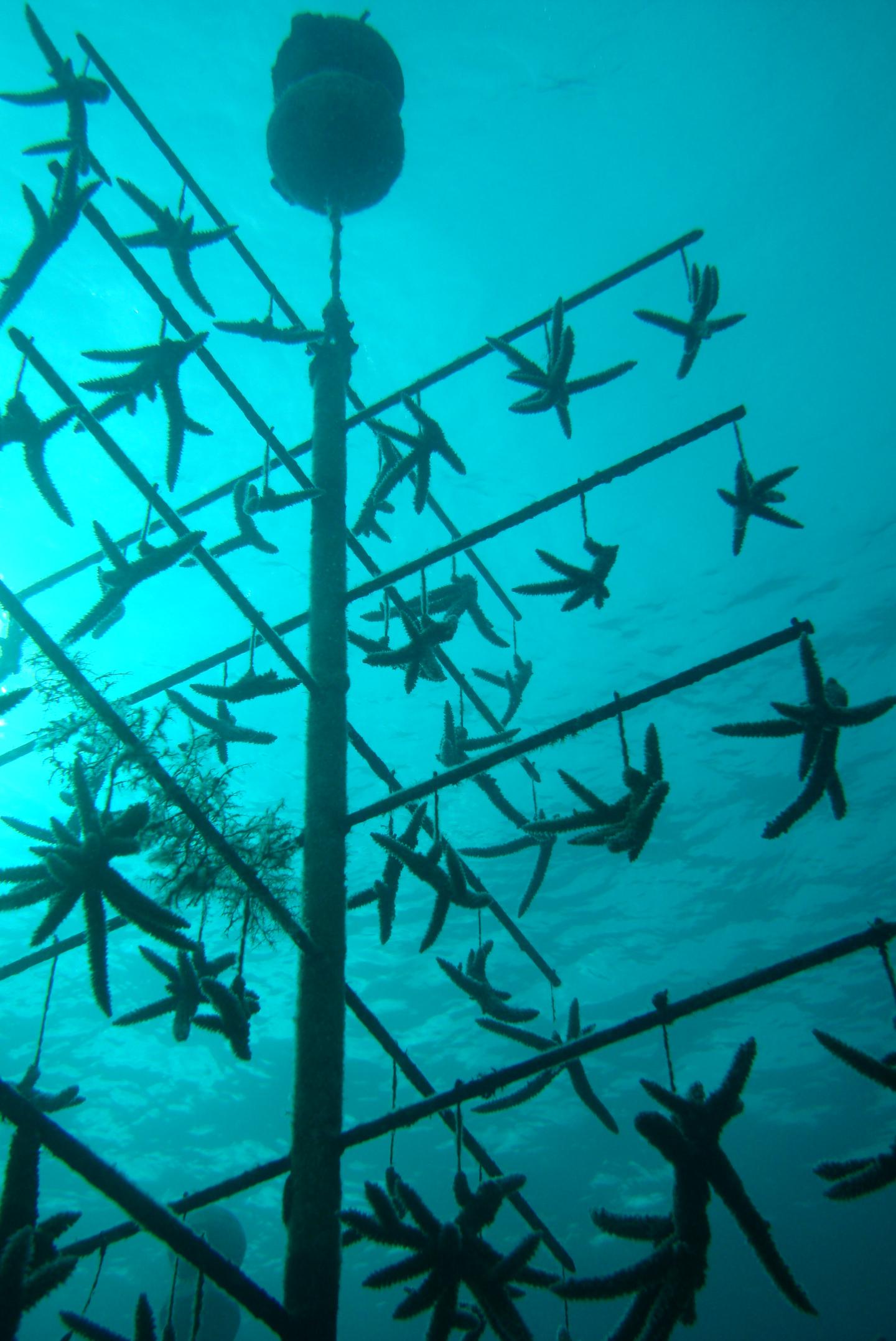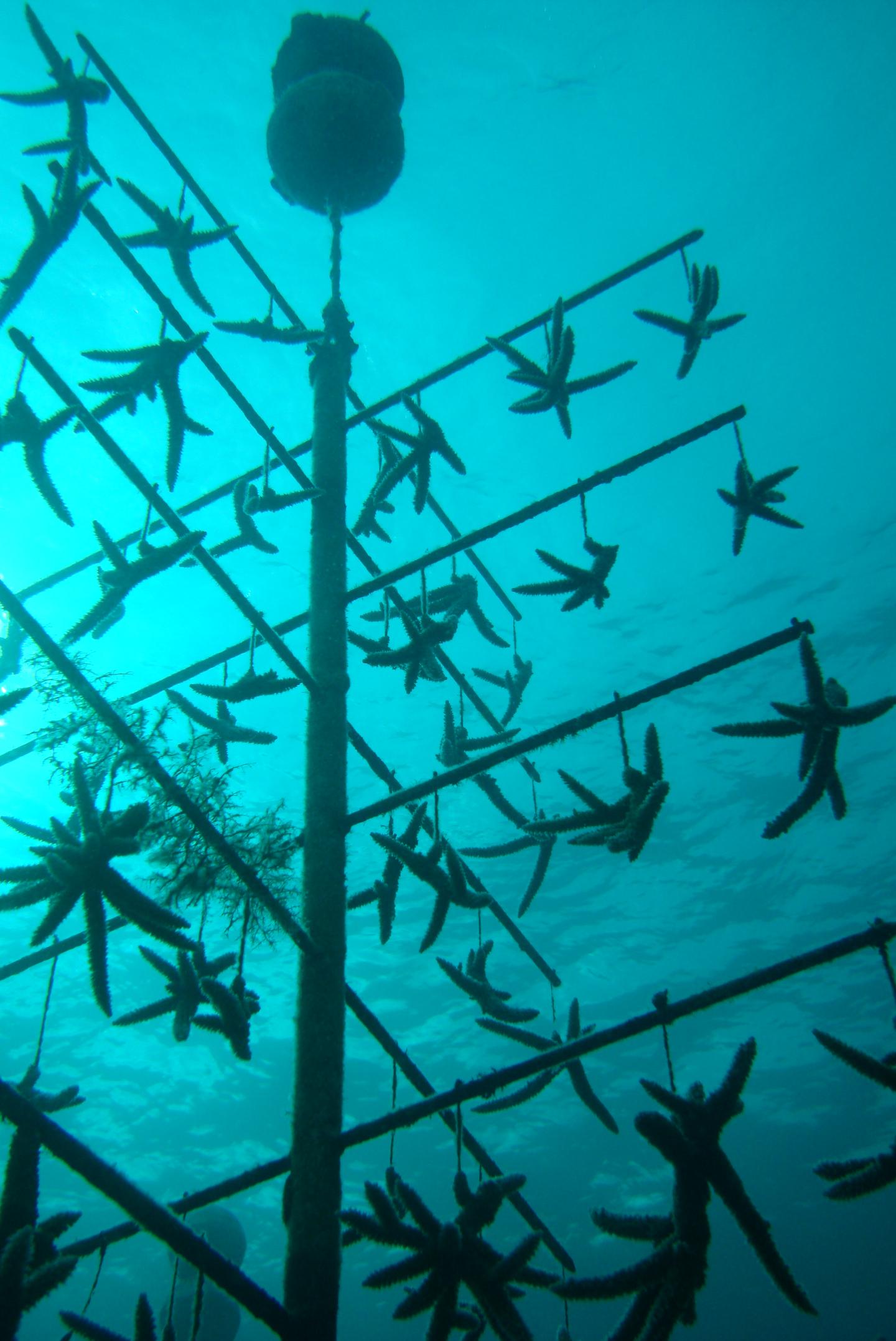
Credit: Florida Institute of Technology
MELBOURNE, FLA. – Coral populations in the Florida Reef Tract have declined in the last three decades due to extreme-temperature events and other stressors that cause bleaching and disease. Scientists are now working to save the reef by transplanting healthy, nursery-grown corals back onto the reefs.
At 150 miles long and 4 miles wide, however, there are a lot of options as to where on the reef tract to place those new corals.
A $205,000 grant from the Florida Fish and Wildlife Commission is allowing Florida Institute of Technology biology professor Robert van Woesik to make the options a bit clearer.
Van Woesik is working to identify habitats and localities in the reef tract that are optimal for coral survival. He and his team will study factors such as temperature and water-flow rates in the hope that the corals grown at the nurseries will have better survival rates when they are transplanted to the reefs.
"Thirty years ago, this type of research was unnecessary," van Woesik said.
Thirteen man-made coral nurseries in Florida waters from Broward County to the Dry Tortugas have been created to help the corals, such as the endangered Acropora cervicornis, regain their crucial place in Florida's marine ecosystem. Coral is, however, extremely susceptible to the threat of global warming.
"We are trying to Esxpunderstand where farmed corals will survive, and under which conditions," van Woesik said.
Beyond the livelihood of the coral itself, many marine animals depend on coral reefs for food and shelter. Indeed, humans also benefit from coral reefs because they act as wave breaks and also supply local communities with food resources.
Many nurseries have already attempted to transplant healthy corals grown at their nurseries to depleted reef systems, but so far, the transplants have had various levels of success: some have survived in the transplant location, others have not.
Van Woesik's work will help improve coral reef restoration and conserve endangered species interest through planning and research.
###
Media Contact
Adam Lowenstein
[email protected]
321-674-8964
http://www.fit.edu
############
Story Source: Materials provided by Scienmag





